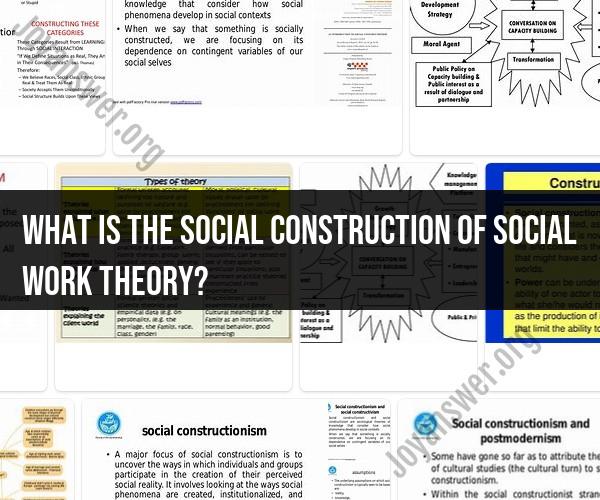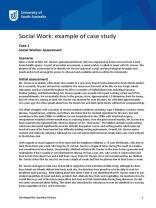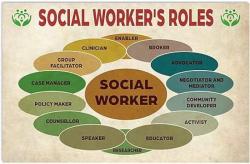What is the social construction of Social Work theory?
The concept of the social construction of social work theory refers to the idea that social work theories, concepts, and practices are not objective truths or universal principles, but rather they are created and shaped by social and cultural factors. In essence, it suggests that our understanding of social work and the theories that underpin it are influenced by the societies and contexts in which they exist.
Here are some key aspects of the social construction of social work theory:
Cultural and Historical Context: Social work theories are developed within specific cultural and historical contexts. They are influenced by the values, norms, and beliefs of the societies in which they emerge. For example, the way child welfare is understood and practiced in one culture may differ significantly from another.
Language and Discourse: The language used in social work theory and practice is not neutral but reflects the dominant discourse of a particular culture or time period. Different societies may use different terminology and concepts to describe similar social work phenomena.
Power Dynamics: The social construction of social work theory also highlights power dynamics. The theories and practices that become dominant are often those that align with the interests of powerful groups within society. This can lead to the marginalization of certain perspectives and the reinforcement of existing inequalities.
Multiple Perspectives: Social constructionism acknowledges that there are multiple valid perspectives on social issues and social work practice. It encourages openness to diverse viewpoints and the recognition that there is no single "correct" theory or approach.
Change Over Time: Social work theories evolve and change over time as societies change. New social issues emerge, and the understanding of existing ones may shift. This adaptability is a hallmark of socially constructed theories.
Influence of Practitioners: Social work practitioners play a role in shaping and adapting theories to real-world situations. Their experiences and insights contribute to the ongoing development of social work knowledge.
Intersectionality: The social construction of social work theory also considers how theories intersect with various aspects of identity, such as race, gender, class, and sexuality. These intersections can shape both the theory and the practice of social work.
In summary, the social construction of social work theory underscores that our understanding of social work is not fixed but is constructed within the social, cultural, and historical contexts in which it operates. This perspective encourages critical reflection on social work practices and theories, recognizing that they are subject to change and can be influenced by various social forces.











